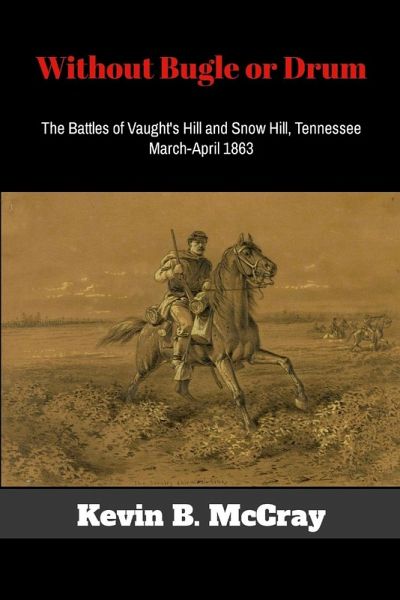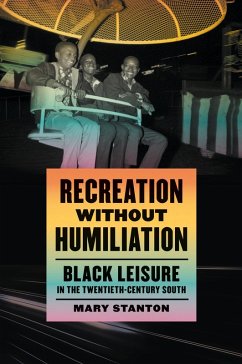
Without Bugle or Drum
The Battles of Vaught's Hill and Snow Hill, Tennessee
Versandkostenfrei!
Versandfertig in 1-2 Wochen
20,99 €
inkl. MwSt.

PAYBACK Punkte
10 °P sammeln!
The year 1862 found the Federal army winning throughout much of the heart of the western Confederacy - western and middle Tennessee, northern Mississippi, and eastern Louisiana. And yet during March 1863 there was growing tension in the fog of war in Middle Tennessee, just weeks following the Union's ground-holding but stalemate "victory" at Murfreesboro as the new year began. Following the Battle of Stones River, Confederate troops retreated 36 miles south of Murfreesboro in pelting sleet and rain, settling along the Duck River where the Highland Rim rises above the Central Basin. It would be...
The year 1862 found the Federal army winning throughout much of the heart of the western Confederacy - western and middle Tennessee, northern Mississippi, and eastern Louisiana. And yet during March 1863 there was growing tension in the fog of war in Middle Tennessee, just weeks following the Union's ground-holding but stalemate "victory" at Murfreesboro as the new year began. Following the Battle of Stones River, Confederate troops retreated 36 miles south of Murfreesboro in pelting sleet and rain, settling along the Duck River where the Highland Rim rises above the Central Basin. It would be the beginning of the Civil War's longest period of inactivity among either army. Union and Confederate forces renewed Middle Tennessee field operations in the spring of 1863, concluding their respite from the Stones River battle. Each day there were skirmishes on the pikes leading from Murfreesboro as Rosecrans' forces foraged and scouted. Needing to tighten his hold on Middle Tennessee, he sent out nine expeditions and nine reconnaissance actions, resulting in 50 skirmishes in the region during 1863's first six months. Without Bugle or Drum highlights two of the more important engagements during this period: Vaught's Hill and Snow Hill. Using an abundance of firsthand accounts and richly illustrated, this book offers in-depth view of the hard fighting and tall marching that characterized this otherwise quiet period of the war. Vaught's Hill saw a bitterly fought contest on March 20, 1863 near Milton, Tennessee, between a Union infantry brigade led by Colonel Albert S. Hall and several thousand cavalrymen under the overall command of General John H. Morgan. Despite being heavily outnumbered, Hall's brigade held its ground and carried the field. A few weeks later, a similar clash took place between US cavalry forces and Morgan's men which later involved an infantry brigade under Colonel Stanley Matthews, future justice of the US Supreme Court.












